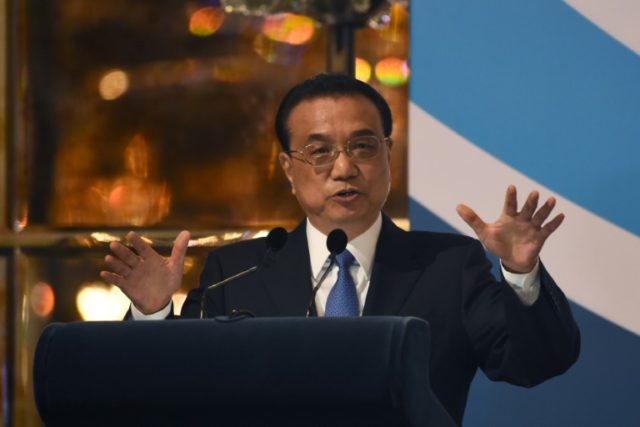Premier Li Keqiang, China’s leading official on economic policy, on Friday recommended market-based reforms – including tax cuts and reduced government spending – to revitalize the stagnating Chinese economy.
Li recommended dealing with China’s slowing economic growth by implementing large-scale cuts in taxes and regulatory fees, which he anticipated would pump about $300 billion into China’s economy, swiftly benefiting everything from state-run enterprises to foreign-owned corporations.
He qualified that state firms would receive tax breaks up front, but would later be required to surrender a larger share of their profits to the central government. In addition to providing a short-term stimulus, that sounds like a plan to bring more money back to Beijing while reducing tax revenue to local governments.
“We are not going for monetary easing, but trying to provide effective support for the real economy,” Li explained.
The Chinese premier said lost government revenue would be made up not by deficit spending, but by spending cuts both in Beijing and local capitals. This would be coupled with tapping into some fiscal reserves and claiming more of the profit from state-run enterprises to defray about half of the revenue lost to tax cuts.
Since Li said deficit spending is not in the cards, that math suggests his economists expect a surge of income from increased economic activity once the lower tax rates go into effect.
Li said one of his objectives is to create a “level playing field” in an economy obviously dominated by the Chinese state so that more foreign businesses would feel comfortable competing in China.
The Chinese government is currently making a great public show of cutting down on technology theft and ending the practice of demanding trade secrets as the price of partnership with Chinese firms. At a news conference on Friday, Li denied his government forces Chinese companies to participate in espionage activities. These measures are intended as both reassurances to foreign business leaders and steps toward ending China’s trade war with the United States.
“We will adhere to the principle of neutrality and treat domestic and foreign companies as equals,” Li vowed.
The Associated Press noted on Friday that China already tried goosing its economy with “higher spending on public works,” but the resulting economic stimulus is expected to do little more than stabilize the Chinese economy in the quarter ahead. The Chinese government is also planning investments in new technology that its firms can exploit in the coming years, such as artificial intelligence.
It’s remarkable to see Communist China embracing the power of market capitalism at the same time Western socialists are attacking capitalism and demanding the same policies that took the wind out of China’s sails. No one should expect President Xi Jinping and his inner circle to start carrying around Milton Friedman books, but the Chinese premier clearly did just advocate tax cuts, regulatory relief, and reduced government spending as the ticket to economic growth.

COMMENTS
Please let us know if you're having issues with commenting.